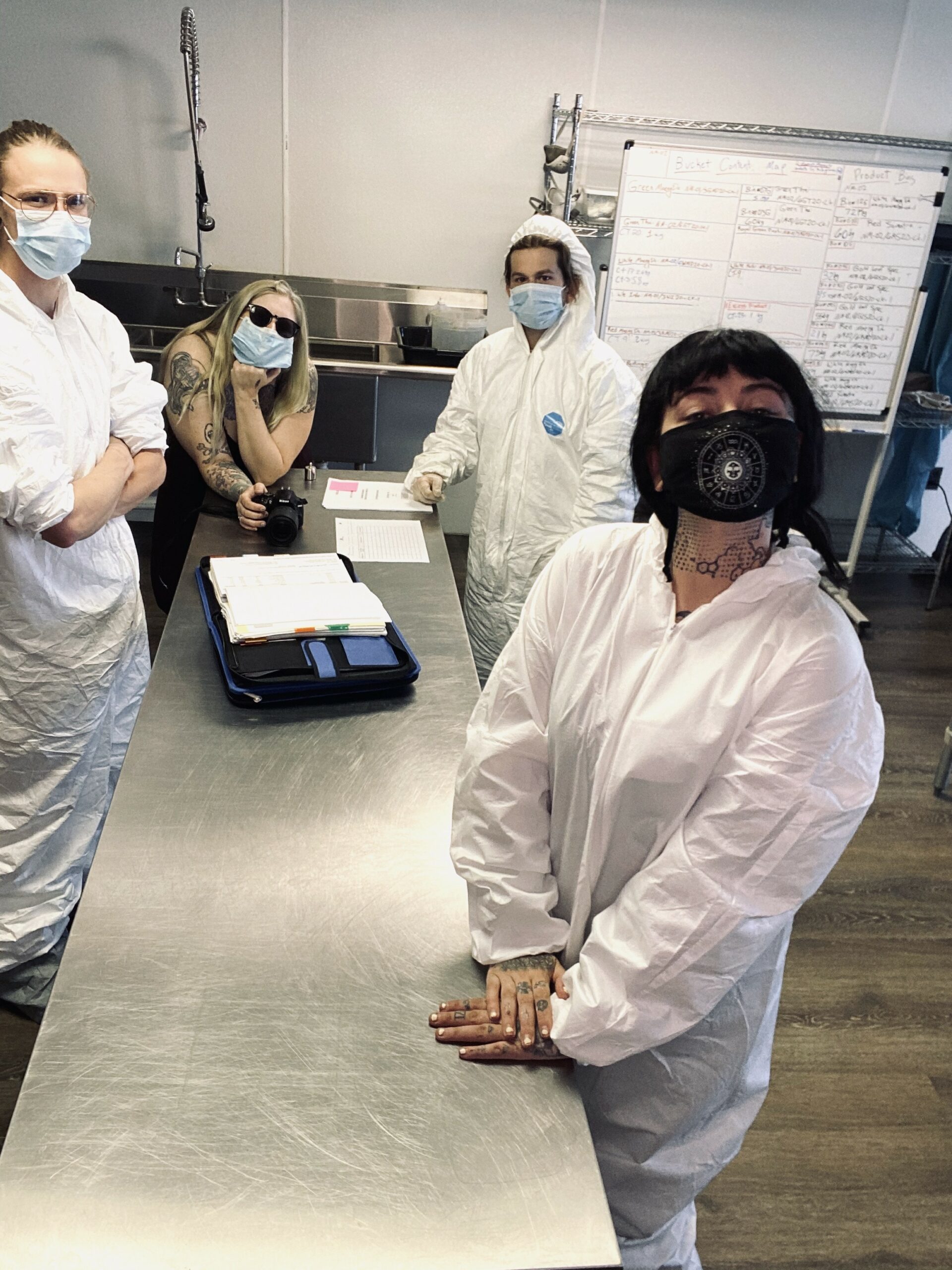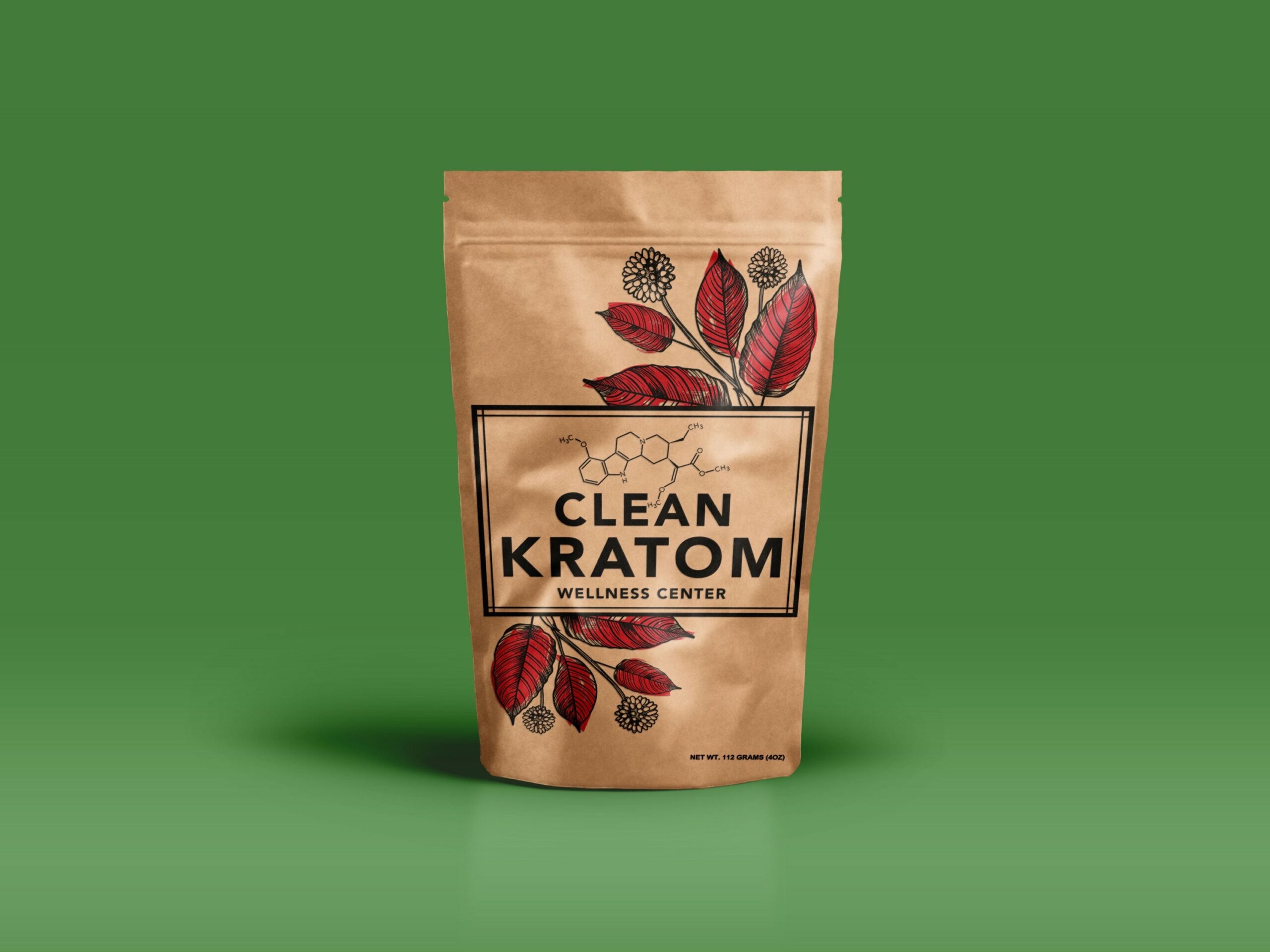Let’s face it, 2020 has been an emotionally trying time for everyone, and has included more stress and disconnect in the daily lives of people than ever before. As a nation, we are in the middle of a crisis with millions of people suffering silently. For myself, I’ve struggled for the last ten years with debilitating chronic pain from Endometriosis combined with a brutal combination of severe depression and anxiety. I had a partial hysterectomy at 21, leading to a full removal many years later. I was told by doctors that doing these surgeries was the only way to correctly "heal" my pain, which was false hope. I was placed on countless opioids for pain, anxiety, and depression. I was turning into someone I didn't recognize. I needed to try something different. That's when my research led me to discover kratom and the benefits it could potentially offer.
Kratom, or Mitragyna speciosa, is a tree with genetic roots linked to the coffee family native to tropical Southeast Asia that's been consumed safely for thousands of years. The consumption of its leaves — traditionally chewed fresh or dried and steeped as a tea for an energy boost similar to its coffee cousin — provide myriad benefits and are relatively new to the United States. From pain and depression to antioxidants and immune-supporting properties, kratom has found its way into pantries across the world.
No, kratom is not the holy grail and it doesn't come without its set of issues.
Today, kratom products sold in the United States are unregulated and the businesses and people who sell them can vary from gas stations to shady convenience stores. The lack of quality control, sanitation practices, lab testing, or safe packaging centers by these shady suppliers can turn a beneficial product for so many into a public health nightmare.
I first found kratom on the internet and tried it to no avail. After reading an article about an individual named Faith Day, and how kratom changed her life, I decided to reach out. I didn't expect much of a response. I was wrong.
A difficult upbringing infused with pain, trauma, and substance abuse motivated Faith to forge her own path in a billion-dollar-a-year industry, bringing a new standard of quality to a nascent industry. Faith would go on to create the first Kratom company in the United States to be licensed by the State Department of Agriculture; she is now licensed in Oregon, Utah and awaiting Colorado regulations to pass. Her store went from a small shop in Idaho Springs that failed in its first two months, to serving nearly 4,000 customers in her Denver location alone .
Many involved with her business are not surprised by this success. Faith’s story and knowledge of Kratom resonated deeply with me personally. After deciding to reach out to Faith, she was quick to supply me with government and state distributed handouts, research papers, and a variety of products at no charge.
 Clean Kratom GMP team retesting vendor products before resell to public.
Clean Kratom GMP team retesting vendor products before resell to public.
The moment I tried their products, my quality of life was never the same. Not only was it instant relief for my pain and ails, it was reassuring to know the products I purchased were safe and effective. Surely, out of the tens of thousands of Kratom vendors in the United States, other storefronts had to be operating safely? What about the others like myself who need this remedy so badly? I decided to investigate the other options and solutions.
I sat down and talked with Dave Wasserman, the owner of the public relations company, Conscious Consulting Co., who has fought countless hours in the Denver capital for the rights of citizens struggling with opioids. Dave is a volunteer and has lobbied for over 40 pieces of legislation at the state level alongside some amazing legislators, such as: Jovan Melton, Vicki Marble, Jonathan Singer, Edie Hootan, Joann Ginall, and many others.
“I first heard of kratom when I was researching legal painkillers after I was diagnosed with Crohn's Disease in 2009," says Dave. “I met Faith Day looking for kratom extracts because I can't consume powder. I found her article online, and reached out the same day".
Dave began helping Faith navigate the dicey legal waters of kratom manufacturing and helped act as a bridge between city officials and her company.
Faith and her Directors of GMP compliance, Brandon West and Taylor Zetterberg developed a set of guidelines, or (Good Manufacturing Practices) custom to the clean kratom wellness center operation. Brandon West, the general manager of Portland operations, was hired on after a conversation with Faith last fall. He has worked closely with the Oregon Department of Agriculture to ensure the companies manufacturing practices and labeling were compliant with federal and state authorities.
 Faith day (front) discusses policy changes with clean kratom staff.
Faith day (front) discusses policy changes with clean kratom staff.
It has taken her team over 600 hours of trial and error, research and development. Faith Day and her team spent nearly 16 weeks in Indonesian kratom fields (both wild and man-made) studying policy, quality control issues, and farming practices. This has helped her company source unique kratom and allowed a framework of compliance to be built around what they had learned.
To provide a fully transparent product, Clean Kratom Wellness Centers’ products and manufacturing centers are inspected by state authority (not the American kratom association) and all items are tested for seven alkaloids, microbials, heavy metals and now 60 residual solvents.
Mitragynine isn't the only beneficial alkaloid and more studies are needed to take a closer look at its alkaloidal profile. Providing such in-depth information can help consumers make the best-educated purchase they can. The products to be sold are all per batch lab-tested and third-party verified by ISO laboratories for potency and microbial safety profiles. It’s imperative to know that ANY Kratom vendor selling product without batch numbers tracing back to lab test are simply not compliant with FDA guidelines. Lab test with batch tracing Are detrimental to the safety of the Kratom industry and its users. These tests are extremely important to protect the health of the consumer, something extremely important to Faith And her team. To date, Clean Kratom Wellness Center is the only Kratom company in Colorado holding a license for Kratom manufacturing by any state regulatory agency. They are currently awaiting policy changes in Colorado to obtain similar licensing in the future.
Clean Kratom Wellness Center follows procedures that cover hygienic practices, processing equipment requirements, guidance on packaging, labeling, and proper marketing practices that ensure the entire manufacturing and retail process is safe for the consumer and the industry. The products you purchase from CKWC have all been processed and manufactured in their state licensed, GMP compliant facilities.
In addition to the companies’ in house blends, Faith and her team have added a variety of ethical Kratom brands to their selection. “We lab test absolutely everything that we put out for sale, even if the company sends us certificates," Faith says with a smile. “There is just too much uncertainty in the Kratom industry”
After my research, I had come to the conclusion of why the choice is simple. Don’t settle for adulterated or contaminated products manufactured in storefronts and back rooms. You deserve better. I deserve better. We ALL deserve better. Because in the end, it is the dangerous vendors who could disrupt our access to this plant .
We have to make smart choices. And our choice is in our purchase and the companies we support.
For more information visit: www.mycleankratom.com





I recently went to Philadelphia & bought some really good orange cream & some lime Kratom gummies too. I haven’t been able to find these flavors or brands anywhere around here. Do you happen to know a good place that may carry them?
Clean Kratom wellness center does actually! The buisness mentioned in the article 🙂